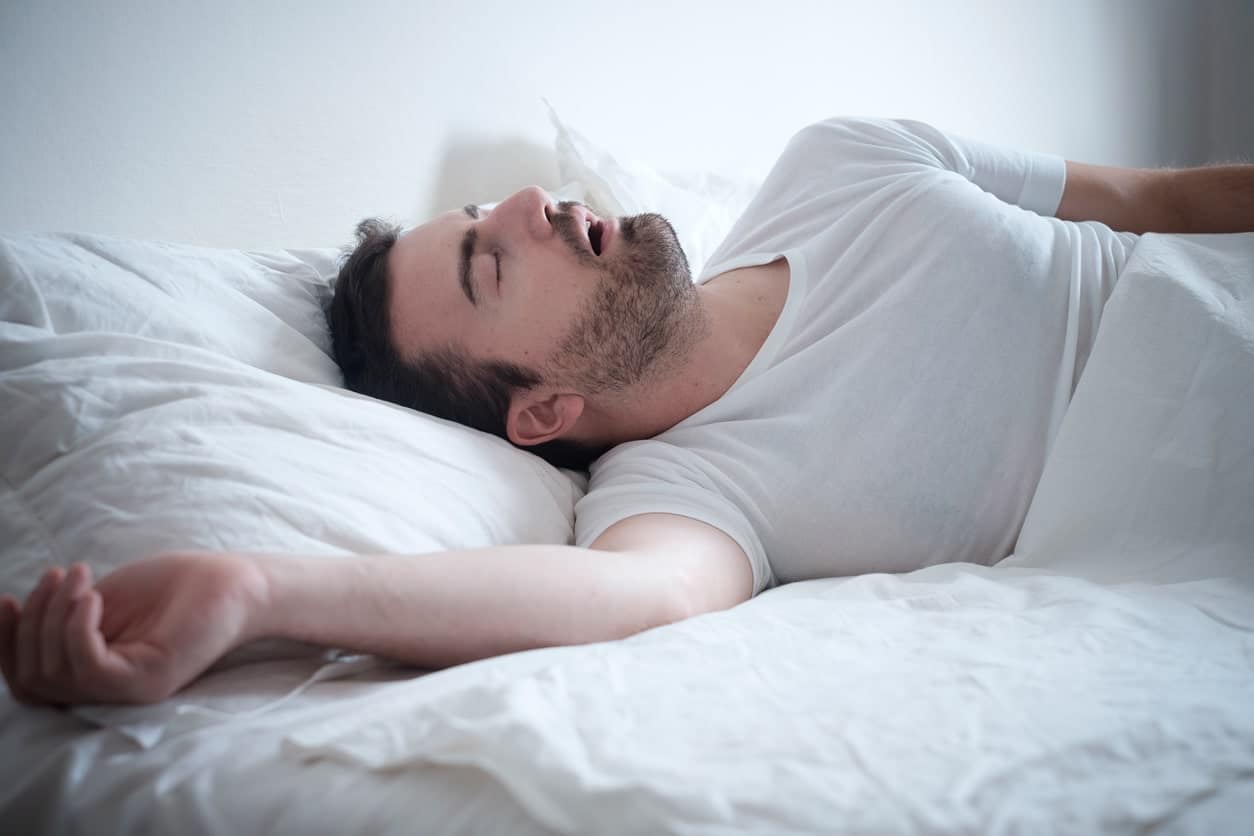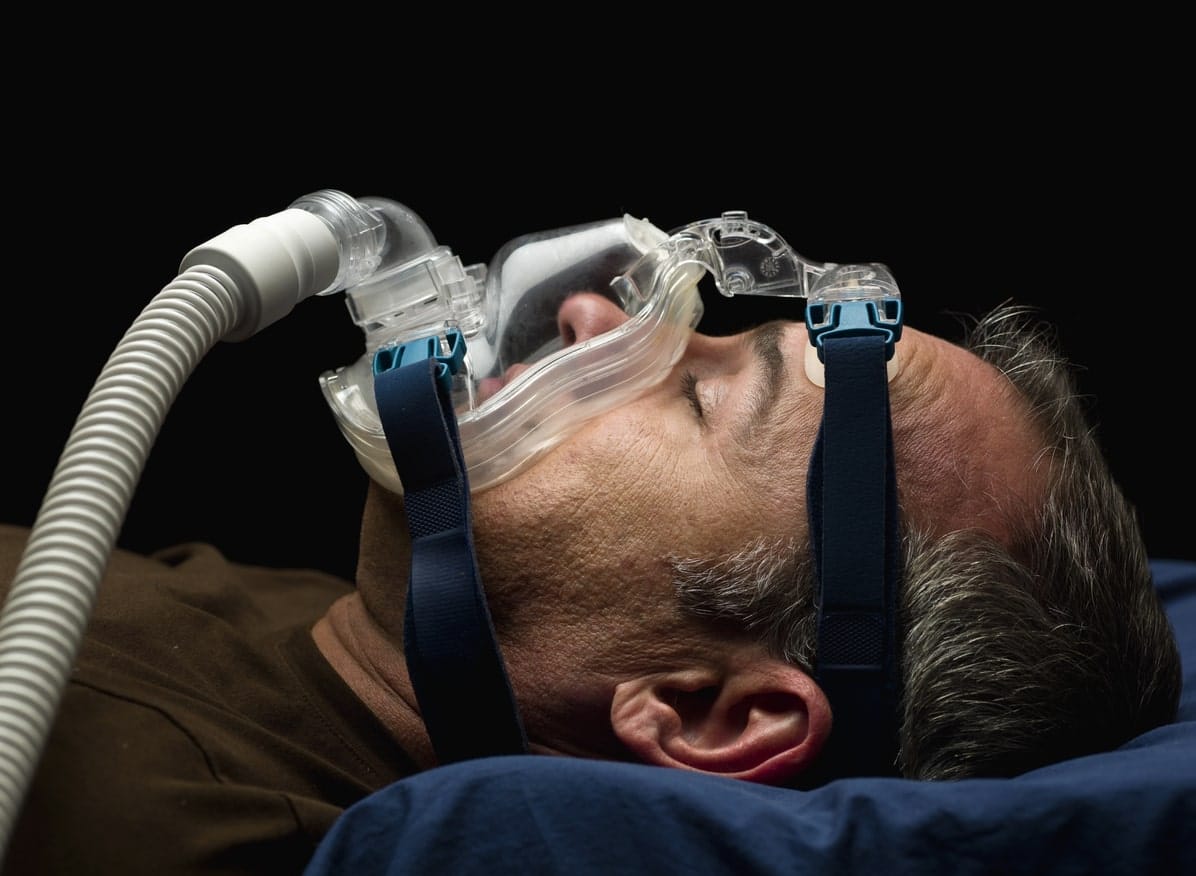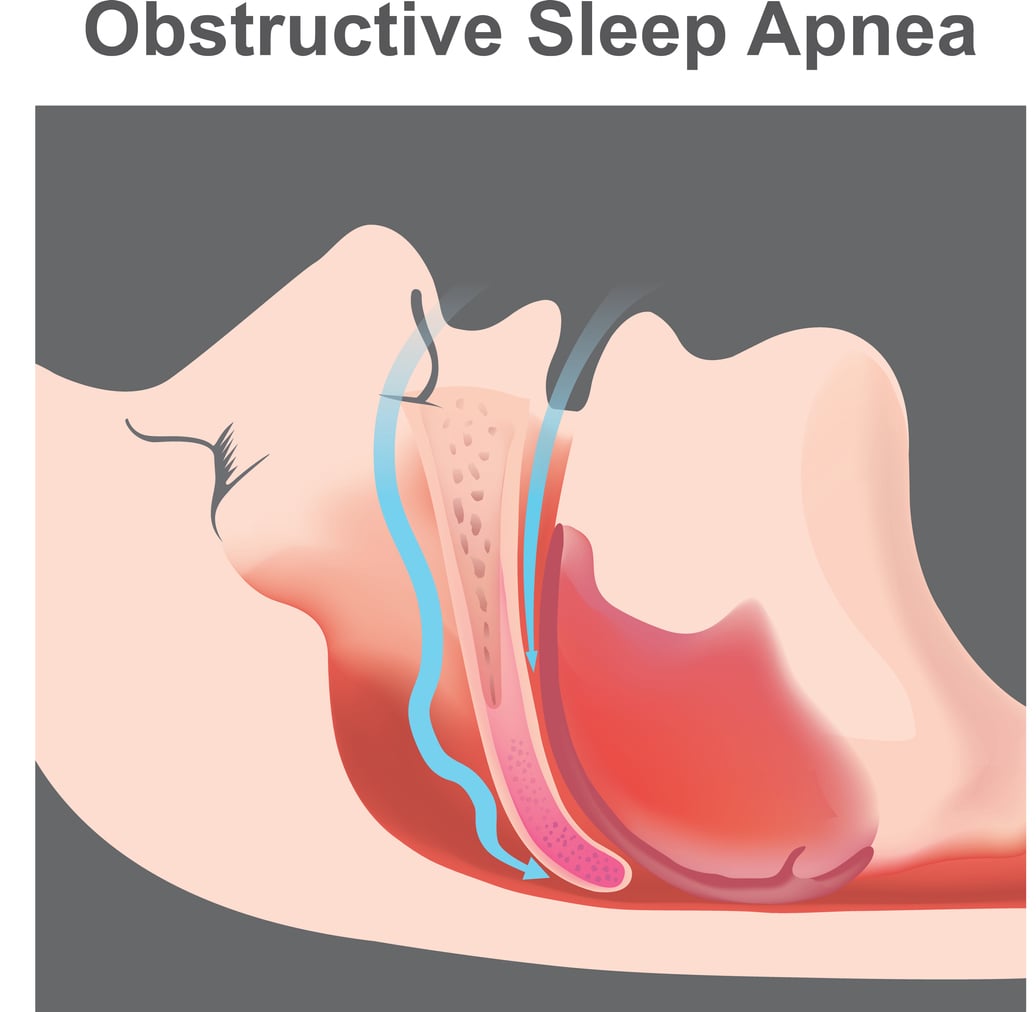What Is Sleep Apnea?
Sleep apnea is a disorder in which a person stops breathing when they are asleep. It has been estimated that 1 in 3 men and 1 in 6 women are affected by some form of this condition.

At the St. Louis Sinus Center, Dr. James Gould is experienced in treating sleep apnea in the St. Louis and Festus, MO areas. Using state-of-the-art technology, he will assess your condition and work with you to develop a personalized treatment plan that fits your lifestyle.
What Are The Symptoms Of Sleep Apnea?
Most people recognize sleep apnea as loud, chronic snoring. However, there are other indicators that should not be overlooked. Symptoms of sleep apnea could include:
- Night sweats
- General lack of energy
- Poor concentration/brain fog
- Constant sleepiness
- Weight gain
- Sexual dysfunction
- Forgetfulness
- Frequent nighttime urination
It is believed that the symptoms of sleep apnea may present themselves more subtly in women. A woman affected by sleep apnea may be diagnosed with depression or anxiety, insomnia, or with side effects of menopause.
Types of Sleep Apnea
People generally get diagnosed with one of three main types of sleep apnea. These include:
- Obstructive sleep apnea (OSA). This condition accounts for more than 80% of sleep apnea diagnoses. OSA occurs when the airway becomes obstructed by soft tissue.

- Central sleep apnea (CSA). This type of sleep apnea occurs when the brain does not signal the body to breathe. CSA is related to a malfunction in the central nervous system.
- Complex sleep apnea (CompSA). When obstructive sleep apnea and central sleep apnea combine, the condition is diagnosed as CompSA. This is a relatively rare sleep disorder.
Who Is Most Likely To Suffer From Sleep Apnea?
Research has identified several risk factors for sleep apnea. These include age, lifestyle, genetics, and ethnicity.
- Age. A person may develop sleep apnea at any age. However, the risk increases as we grow older. Researchers believe this is due in part to the way the brain controls breathing and how this function changes with age. Age-related fat accumulation around the neck could also explain this increase.
- Lifestyle. Alcohol alters the way the brain behaves during sleep. It also has a depressive effect, which could initially deepen a person’s state of sleep and the extent of muscle relaxation around the airway. Smoking can contribute to sleep apnea by causing inflammation in the upper airway. Finally, sleep apnea could be attributed to obesity caused by poor eating habits.
- Heredity. Studies in twins with sleep apnea suggest that a genetic component exists in the development of this condition. This relates to the structural development of the skull and face and the way in which the brain controls sleep functions.
- Ethnicity. Statistics show that Native Americans, Hispanics, and blacks are more commonly affected by sleep apnea than other ethnicities.
"Great staff! Clean and comfortable office. I highly recommend Dr. Gould."
How Do You Diagnose Sleep Apnea?
A multi-pronged approach is taken to diagnose sleep apnea. Your doctor will conduct a thorough medical history and health examination and will likely follow up with a formal sleep study. This test, conducted while you sleep, measures brain and heart activity as well as the rate of breathing.
How Is Sleep Apnea Different Than Snoring?
Snoring may be a symptom of sleep apnea, but the two are different in a significant way. When a person snores, air has difficulty passing over the soft tissue somewhere along the airway. This could be in the nasal passages or throat. The soft tissue vibrates with the force of air, causing the sound we know as snoring.
When a person has sleep apnea, they stop breathing for moments at a time. Studies have indicated that a person with sleep apnea may stop breathing for several seconds before the brain releases adrenaline to restart respiration. These pauses in breathing can occur hundreds of times an hour.
What can Cause/Increase My Risk of Obstructive Sleep Apnea?
Sleep apnea can be a serious condition but it is one that can be managed and treated to reduce the short- and long-term effects of sleep loss and oxygen deprivation. Apnea episodes may increase or decrease with:
- Weight. Excessive weight causes the accumulation of fatty tissue around the airway. Patients are encouraged to lose weight if necessary and to maintain a healthy BMI.

- Alcohol and medications. Alcoholic beverages and sedatives such as sleeping pills, opioids, and other medications can cause muscles to relax to a point at which they interfere with breathing.
- Eating habits. People with sleep apnea are advised to avoid eating and consuming caffeine within two hours of going to sleep. Each of these can disrupt sleep.
- Sleep habits. The body is better able to properly relax and maintain a sleep cycle when a person maintains regular sleep hours, such as a 9 o’clock bedtime.
Some patients can minimize apnea episodes by sleeping with their head slightly elevated or sleeping on their side.
Schedule A Consultation
If you are suffering from sleep apnea in St. Louis or Festus, MO, please call 314-582-0888 to schedule a consultation with our experienced team at our office’s in St. Louis and Festus, MO. You can change your life with nose surgery and you can take the first step by speaking with us.

